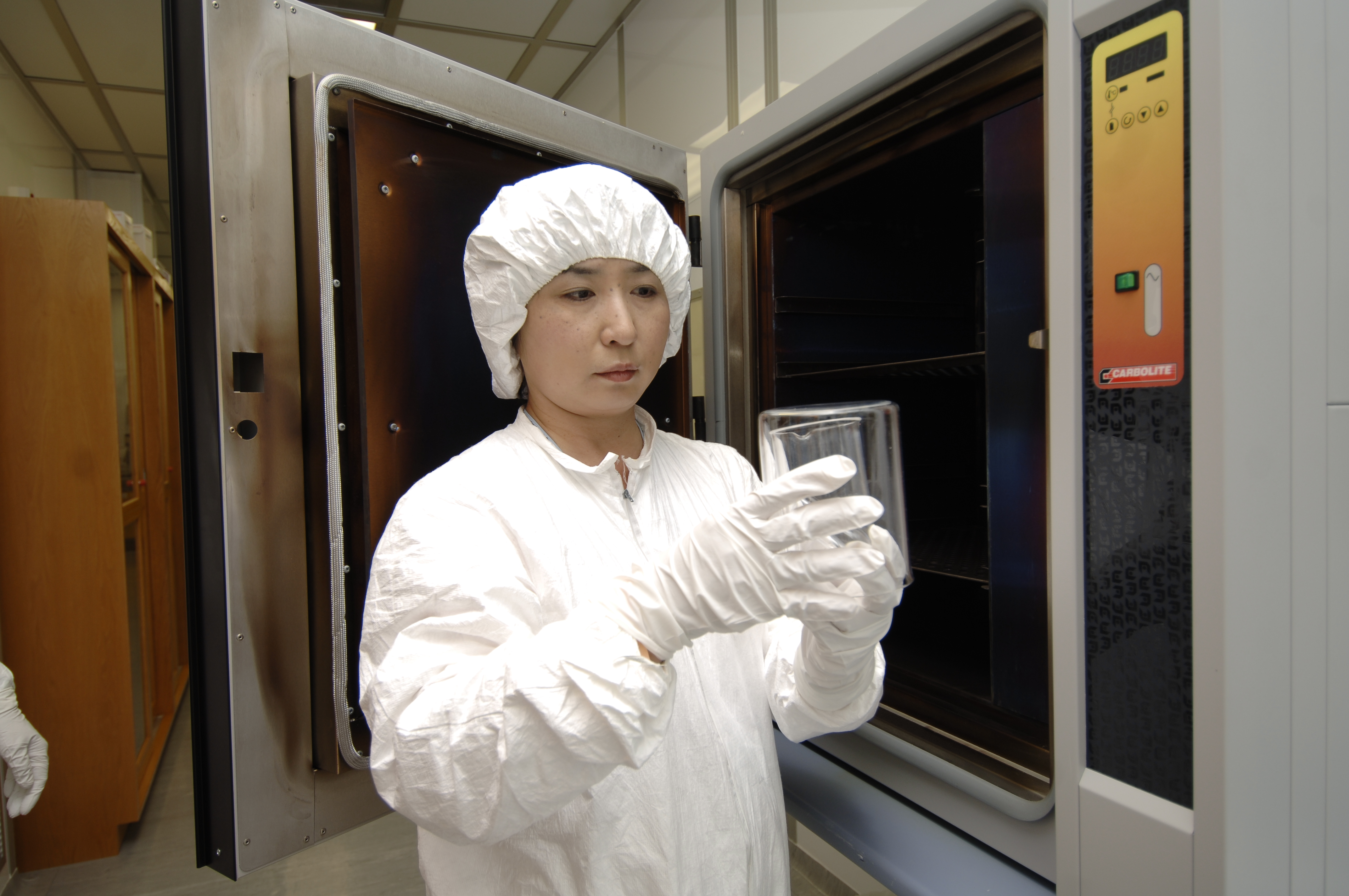Laboratory furnace
From LIMSWiki
Jump to navigationJump to searchThe printable version is no longer supported and may have rendering errors. Please update your browser bookmarks and please use the default browser print function instead.
A laboratory furnace is a specially designed piece of laboratory equipment that is designed to analyze, incinerate, and/or heat treat samples. In the late nineteenth century, the laboratory furnace was described as "a small and compact form of furnace for the laboratory of workshop, such as the Bunsen-burner furnace of the blast gas-furnace."[1] These furnaces were originally fueled by gas[2], though electric versions began appearing in the late nineteenth century.[3] Early uses were for managing metals and other geological extracts (e.g., studying the inflammability of coal dust).[2][4][5] In modern times, the laboratory furnace may be used for crystal growth[6], corrosion testing[7], and biomass fuel combustion testing.[8]
References
- ↑ "laboratory-furnace". The Century Dictionary: An Encyclopedic Lexicon of the English Language. IV. The Century Company. 1895. p. 3318. https://books.google.com/books?id=jgOYOB_nRAkC&pg=PA3318.
- ↑ 2.0 2.1 Fletcher, T. (1873). Practical Hints for the Laboratory and Operating Room. pp. 25–27. https://books.google.com/books?id=kgt-JFwVHsQC&pg=PA25.
- ↑ n.a. (1897). "25th Anniversary of the Stevens Institute of Technology - The Electrical Exhibits". The Electrical Engineer 23 (460): 226. https://books.google.com/books?id=W4dMAAAAYAAJ&pg=PA226.
- ↑ Gillett, H.W.; Mack, E.L. (1922). Electric Brass Furnace Practice. U.S. Department of the Interior. pp. 212–13. https://books.google.com/books?id=_8AzAQAAMAAJ&pg=PA212.
- ↑ Greenwald, H.P. (1932). Laboratory Testing of the Inflammability of Coal and other Dusts Conducted by the Bureau of Mines. U.S. Department of Commerce. pp. 42–45. https://books.google.com/books?id=nihC9VdKYcQC&pg=PA42.
- ↑ Cabric, B.; Janicijevic, A. (1 June 2004). "Obtaining crystals in a laboratory furnace" (in en). Journal of Crystal Growth 267 (1-2): 362–363. doi:10.1016/j.jcrysgro.2004.03.048. https://linkinghub.elsevier.com/retrieve/pii/S0022024804003574.
- ↑ Gaus-Liu, Xiaoyang (2008). High-temperature chlorine corrosion during co-utilisation of coal with biomass or waste =: Rauchgasseitige Hochtemperaturchlorkorrosion bei Mitverbrennung von Kohle und Biomasse/Abfall (1. Aufl ed.). Göttingen: Cuvillier. pp. 53–54. ISBN 978-3-86727-568-2. OCLC 244027996. https://www.worldcat.org/title/mediawiki/oclc/244027996.
- ↑ Olanders, Birgitta; Gunners, Nils-Erik (1 January 1994). "Some aspects of the formation of nitric oxide during the combustion of biomass fuels in a laboratory furnace" (in en). Biomass and Bioenergy 6 (6): 443–451. doi:10.1016/0961-9534(95)90406-L. https://linkinghub.elsevier.com/retrieve/pii/096195349590406L.










